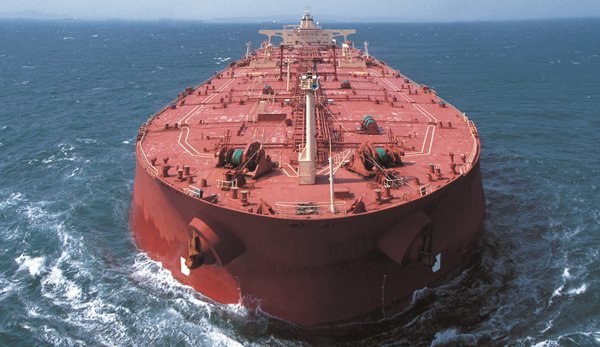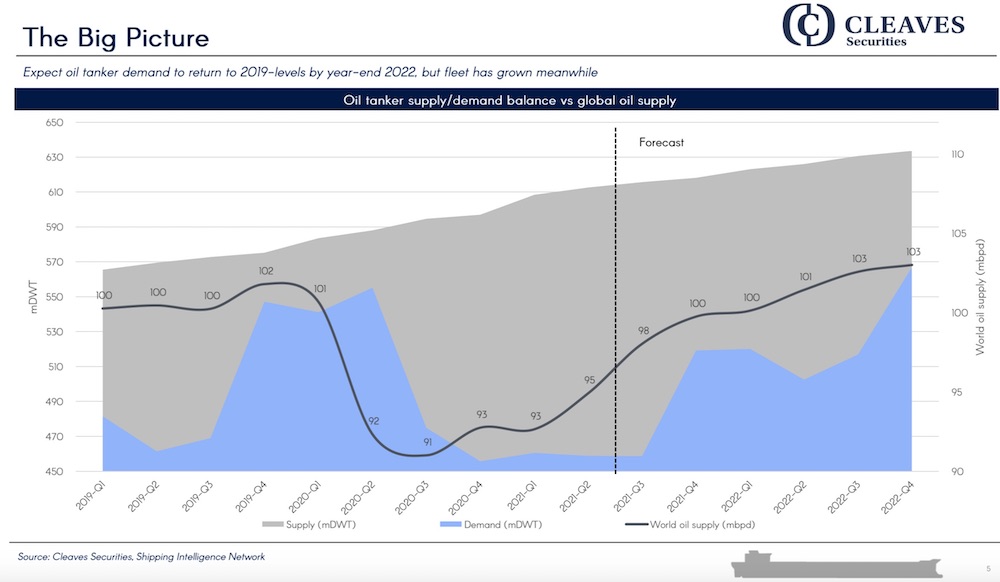Long wait for tanker demand to return to pre-pandemic levels

Tanker owners, suffering one of their worst years in a decade, will have to wait until the end of next year for demand to return to pre-pandemic levels, multiple analysts suggest.
Alphatanker is estimating that by the end for this year, global tanker demand will stand around 2.3% below its pre-pandemic peak and even by the end of 2022, the lag will stand at 0.6%. Alphatanker projects that clean tanker demand will recover ahead of crude tanker demand.
“The first half of 2022 is likely to remain difficult. Global tanker demand is set to wane seasonally in tandem with oil demand and not expected to surpass 4Q21 until 3Q22. In fact, it is only in 4Q22 that demand is expected to grow significantly,” Alphatanker predicted in its latest weekly report.
Tanker demand is the worst of all the sectors in terms of how far behind it is to pre-pandemic levels, research from Clarkson Research Services shows, with car carriers the second worst.
Clarkson’s overall seaborne oil trade index was down 9.5% in January to July, compared to 2019 levels, with the broker citing in a recent report continued pressure on oil demand, OPEC+ supply curbs, and drawing down of inventories dragging on trade volumes so far this year.
Cleaves Securities held a tanker webinar yesterday in which it too said it would take through to the end of 2022 for oil tanker demand to return to 2019 levels. However, the webinar was bullish about investment prospects into the sector, with Cleaves saying it expects its oil tanker asset index to increase by 23% over the next two years.


just put some boxes on the deck